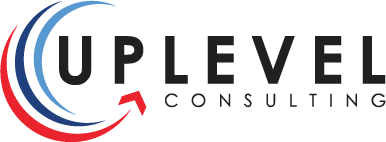Coaching: Top Skills for Leaders During Disruption

The word “coach” on its own may conjure up images of a whistle-wearing leader in gym clothes carrying a clipboard but coaching today is much more than that. There are executive coaches, accountability coaches, health coaches and many more. Coaching is different than mentoring, separate from therapy and distinct from training and consulting. So, what is coaching?
During my certification as a coach I adopted this definition, “coaching is a growth-promoting relationship that elicits autonomous motivation, increases the capacity to change, and facilitates a change process through visioning, goal setting, and accountability, which at its best leads to sustainable change for the good.” (Moore, Jackson, Tschannen-Moran). Since then I’ve found others including pioneer of executive coaching Sir John Whitmore’s definition: “Coaching is unlocking a person’s potential to maximize their own performance. It’s helping them to learn rather than teaching them.”
Personally, I’ve experienced accelerated growth and accomplishment through coaching. And over the last several years, I’ve noticed that a coaching approach is being recommended for leaders across many disciplines. Furthermore, it has become increasingly evident how a coaching approach, in how we communicate, can benefit all of us individually and as a society.
Gains from Coaching
When I wanted to write a book, I joined a coaching program. I could have self-published a book alone but not likely in 4 months from blank page to tangible hard copy like I did with coaching. The group coaching program I invested in, helped me stay on track. It provided support from people who had already solved the problem of writing and publishing a book. Naturally, I benefited from that expertise. Without the coaching, insight, experience and support I might not be able to say “I am an author” like I can today. Make no mistake, this required skin in the game. I invested in achieving this outcome and I did the work. I wrote every word, sought input, found the editor, designed the cover, navigated Amazon and did all the other necessary steps to achieve my goal. Everyone wants to write a book, far fewer will get it done. Coaching helped me get it done and build my level of influence once published.
Sometimes we can benefit from a coach when we want to get to our next level of achievement. Sometimes we need coaches to help us find clarity when things get muddy in the mind. And sometimes coaches are helpful to keep us accountable with our goals. Many times, coaches are helpful with all of the above. I know with 100% certainly that I have benefited greatly from hiring coaches to help me create my business. I know this for a few reasons. Number one, I feel like a different person - in fact, I know I am a different person now than I was before my coach. Second, my proof also comes in the form of financial gain. Through working with my coach, who lends her understanding and expertise, I’ve been able to triple my revenue in the last three months. The work was up to me, of course, but these are tangible results. Having a coach to share ideas with, reflect, brainstorm, and co-crate with has been invaluable for me in my business. Could I have tripled my revenue alone? Perhaps, but not likely in the 3-month timeframe like I did with the support of a coach.
Develop Your Coach Approach
As I’ve studied teamwork in organizations, I recognize the leadership landscape is changing. Leaders in medical professions, education and corporate management are being advised to develop a coaching approach.
For instance, when I was being onboarded as an adjunct professorfor a local college we were encouraged to “coach the classroom.” In other words, don’t lecture and direct. Instead, shift your approach to asking the class more questions, get them thinking, get them experimenting and creating their own solutions. That’s coaching.
When I was studying to become certified in nutrition, we were reading books such as, Motivational Interviewing in Health Care: Helping Patients Change Behavior. The authors here are writing to doctors, nurses and other health-care providers. They point out that simply giving directives won’t ensure people do anything different. Authoritarian style leadership is being phased out. Leaders with important responsibility (i.e. health) are being encouraged to listen, ask questions and use empathy in order to ensure behaviors (lifesaving behaviors at that) are actually adopted. The manner in which you communicate makes all the difference. That’s coaching.
The real clincher that there is a change in leadership happening comes from long-time leadership expert and author John Maxwell in his 2019 book, Leadershift: The 11 Essential Changes Every Leader Must Embrace. He writes, “To reach your leadership potential – and more importantly, to help others reach their individual and team potential – you need to make the shift from soloist to conductor.” That’s a coaching approach.
And the November-December 2019, Harvard Business Review’s article The Leader as Coach notes, “The best practitioners have mastered both parts of the process—imparting knowledge and helping others discover it themselves...” In this article they specifically state the style of the manager knowing all the answers has gone away and that, “companies are moving… toward something very different: a model in which managers give support and guidance rather than instructions, …The role of the manager, in short, is becoming that of a coach.”
So why the fuss about approaching leadership like a coach? Because when it’s broken, you fix it.
The Coaching Advantage
Perhaps the changes in the nature of our work from the industrial age to the information economy is a contributing factor for this shift from directive to coach-style leadership. The reasons why aren’t as important as how we do it, and what benefits can be realized from coaching.
So, how might you adopt a coaching approach as a leader? How can experiencing coaching benefit you in achieving your professional goals? Two great resources for both questions are:
· The Coaching Habit by Michael Bungay Stanier is a great introduction to creating a coaching approach for managers and leaders. This book provides tips and tools that can help shift perspective and lead others in doing the same.
· As for professional development and personal growth, one of my favorites is by Executive Coach Marshall Goldsmith called, Triggers: Creating Behavior that Lasts – Becoming the Person you Want to Be.He brings to light why we, despite the best of intentions, often fail to produce the results we desire.
As a leader, if you hope to create a high-performing team, you first must work on developing your own level of performance. Lead by example. In order to be a coach, or have a coaching approach, experience it for yourself.
A coaching program helps you focus, avoid distraction, and navigate obstacles in real-time as they are relevant to YOU. This personalized experience can help you execute on your goals, and make the vision you have for your future, a reality.
As Shawn Achor points out in, Big Potential, it is a myth of our society to think we become successful alone. We are obsessed with the hero's journey. It is a part of every story that exists but it's FALSE. We reach our highest potential when we work together. “Once we learn to coordinate and collaborate with those around us, we all begin to shine brighter, both individually and as an ecosystem” he writes.
As we invest in ourselves and become the best version of ourselves, we contribute to the larger society. With coaching, we develop powerful skills that help us become more influential with other people. We focus on developing our empathy, listening, emotional intelligence, grit, curiosity, collaboration, co-creation, communication and effective leadership to name a few. These human capital, emotional labor-style skills will always be highly valued as they are not easily replaced.
Coaching: Now and Beyond
So why dive into a coaching program now? Because as Harvard Business Review noted in the previously mentioned article, “Rapid, constant, and disruptive change is now the norm, and what succeeded in the past is no longer a guide to what will succeed in the future.”
Since I am a Communication Coach-sultant, I understand if this sounds self-serving but when you find something that works, you inevitably want to share it. When you get the results that you want from your new healthy eating plan, you share it. When you find a new favorite restaurant, you share it. Even when you discover an awesome new television show or movie, you want to share it. Coaching has produced results for me and now I am honored to help my clients create the professional success they so desire and deserve.
If you'd like to explore how you could level up through coaching, contact me through the site here and let's talk!
Short list of articles on coaching:
https://hbr.org/2019/11/the-leader-as-coach
https://hbr.org/2015/02/is-your-employee-coachable
https://www.marshallgoldsmith.com/articles/when-leadership-coaching-works-and-when-it-doesnt/
https://instituteofcoaching.org/coaching-overview/coaching-benefits

0 comments
Leave a comment
Please log in or register to post a comment